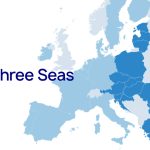Threats and conflict are closer to Europe than they have ever been in a long time. With the Russia-Ukraine War, the conflicts on the border of Europe, the developments in the Suwałki Corridor and the tension in the Balkans; it has the potential to penetrate the borders of Europe at any time. Moreover, the threats are not just at the borders. Operations and assets in distant lands where Europe’s locomotive states have interests also face major threats. European states, especially France, and the EU policies and practices in general are the primary contact area in these threats in terms of protecting security, trade, and spheres of influence in Africa and Southeast Asia. The possibility of European states losing their regional influence as a result of military or political challenges is increasing. 2024 will not be different in these matters. The two countries that Europe can rely on to defend its lands and intellectual interests are located at the two geographical ends of the old continent: Türkiye and United Kingdom.
On 16 March 2021, the British Government published its vision for the UK’s role in the world over the next decade. The report, called the “Integrated Review” (IR21), combined the areas of international development, national security, foreign policy and defense policy into a single strategy. IR21 was shaped by the Brexit process and the “Global Britain” model promoted by Boris Johnson, and completely ignored the EU as a partner. Previous Prime Minister Liz Truss, who briefly stayed in office after Johnson, initially considered revising the document to take a tougher stance on China. The latest update under the current Prime Minister, Rishi Sunak, who adopted a more pragmatic foreign policy, largely abandons claims about a world-leading “Global Britain”. Instead, the new British government is painting a picture of a UK embracing shared risks with its Western partners and facing greater geostrategic competition.
Can there be EU and NATO Competition in the European Security Vision?
The United Kingdom’s withdrawal from the EU affected the capacities of the Union and its member states as well as bilateral relations. For example, this separation left France without its most similar and significant partner within the Union in terms of its capacity to conduct high-intensity operations outside its national territory. By doing so, France became the only EU country with nuclear weapons and a permanent seat on the United Nations Security Council, which gives greater responsibility. Moreover, the current situation comes with the pressure to use this responsibility with the powers it shares across the EU, which is seen as a risk for national politics.
…









